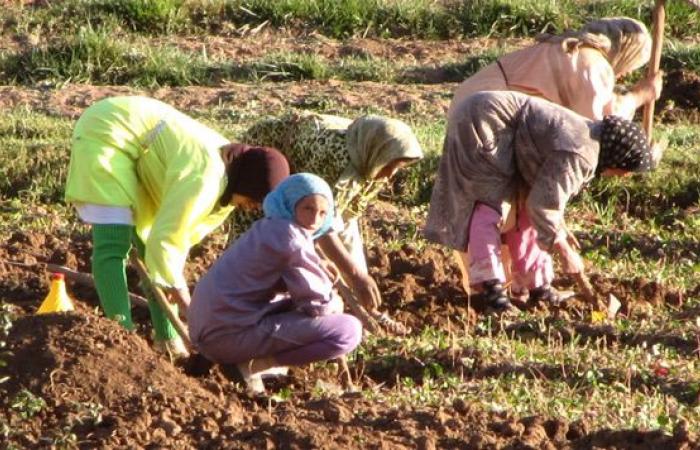Morocco celebrates the International Day of Rural Women on October 15 each year. The opportunity to deepen the debate on issues related to the emancipation of women in rural areas and to rethink the evolution of their living conditions.
October 15, this globally recognized date, recalls each year the decisive role played by rural women in the sustainable development of the kingdom as well as their effective contribution to the local economy. Indeed, women represent real pillars of rural and agricultural development in Morocco. According to data from the Ministry of Agriculture, Maritime Fisheries, Rural Development and Water and Forests, the latter contribute to approximately 93% of agricultural and semi-agricultural activities.
Thus, women in rural areas constitute a crucial economic force contributing greatly to the food security and economic development of the kingdom, especially since they represent more than 40% of Morocco’s agricultural workforce, according to figures. ministerial.
In this sense, Morocco has, over the years, been part of a dynamic which aims to guarantee sustainable inclusion of women from rural areas in the social and economic fabric, in application of royal instructions.
Thus, multiple projects and initiatives have been put in place to empower women and guarantee them equitable access to fundamental rights. The Tamayuz Prize for Moroccan women is just one example among many. Launched by the Ministry of Solidarity, Social Inclusion and Family, this initiative aims to raise awareness of the potential of rural women entrepreneurs and professionals who have been able to distinguish themselves within the framework of their development initiatives. As it works to strengthen their economic emancipation as well as to support them in the use of modern technologies in order to reduce the gap between the sexes.
Read also: Moudawana: women could pay “Nafaqa”
Blockages still persist
Certainly, multiple efforts are being made to promote the situation of Moroccan women throughout the kingdom. However, several challenges still persist and hinder rural women’s access to their fundamental rights.
The data published by the High Commission for Planning (HCP) clearly prove this. According to the latest statistics revealed, the illiteracy rate among the rural population has crossed the 60% mark in 2024. Knowing that it represents 54.70% among the female population compared to 30.80% for the male population.
Other data revealed by the HCP in the 2023 annual report entitled “Moroccan women in figures” show that the rate of women without any diploma reached, in 2022, 74.4% in rural areas compared to 47.1% for urban women.
These figures perfectly show that rural girls’ access to college and secondary education still remains limited. Here is what lifts the veil on a major problem plaguing rural areas, namely school dropouts, particularly at the middle school level.
Add to this, access to basic health care which, in turn, represents a major challenge, particularly for women living in isolated areas with poor hospital infrastructure.
Commitment, a fundamental lever for promoting the status of women
Given the various issues that hinder rural women’s equitable access to their rights, the date of October 15 is supposed to be a crucial meeting to relaunch the debate on the living conditions of rural women. But also and above all to rethink the public policies put in place in their favor. However, this day remains under-publicized and almost completely disappears from the radar.
This situation requires, more than ever, the commitment of all actors in civil society to contribute together to the emancipation of women from rural areas who, despite their capital role in the development of the kingdom, often remain marginalized and relegated. to a secondary role in the social fabric.






